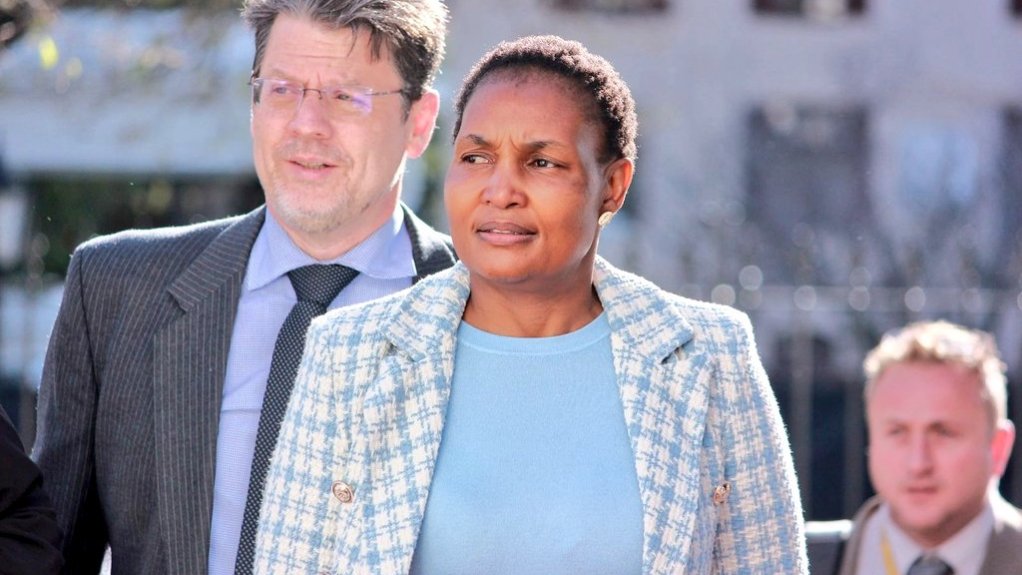Justice and Constitutional Development Minister Thembi Simelane said on Thursday that government must investigate the existing policing and judicial systems and related processes to fight crime effectively.
Speaking during the Police and Prisons Civil Rights Union’s (Popcru’s) central executive committee meeting, Simelane said government was concerned about the “staggering amounts” of legal fees owing to lawsuits against the State.
She noted that under the Criminal Procedure Act, government had noted the many policy implications that an overhaul would demand to enhance and empower the fight against crime.
She pointed to overcrowding in correctional centres, and the high number of remand detainees, saying this was not only an economic issue, but one of human dignity, noting that inmates were held in deplorable conditions in facilities that could not cope with the high numbers.
Simelane said a review of the bail dispensation would consider alternatives to bail payment, modernisation of bail processes and community involvement in consideration of bail.
Also under review would be using technology in the criminal justice system to verify a person’s physical address, and whether pre-trial hearings in dedicated bail or reception courts should be preceded by affordability enquiries, as well as if there should be consideration of other (non-monetary) forms of bail for minor offences, Simelane suggested.
“This aspect of the review also seeks to provide guidance on the issue of exceptional circumstances which are used in the courts to determine whether a person should be released on bail or not,” she said.
The implementation of the judicial case management system is also being considered for criminal matters, and a review of legislation will also consider the expungement of criminal records in a shorter time. Simelane pointed out that currently a person waited for 10 years to apply for an expungement.
She also pointed to the lack of a legislative dispensation for the introduction of deferred prosecution agreements. This was applicable when a juristic person acknowledged criminal liability for an act, paid a fine or complied with any other remedial action and had undertaken not to repeat such conduct.
“The intention of introducing deferred prosecution agreements is to avoid the prosecution from having to proceed with long drawn-out and costly criminal trials against juristic persons. This is an area of policy that will be carefully considered, to ensure that our criminal justice system is fair and applies equally to all persons accused of crime,” she stated.
The proposed legislation will embrace the concept of modernisation in the criminal justice system in terms of record management and digitisation, virtual hearings, electronic evidence and e-discovery.
“An option will be introduced in the legislation whereby bail may be paid by way of electronic fund transfer, as opposed to the current manner of cash payment,” Simelane said.
Biometrics will be used as a form of identification of individuals in a criminal case, “be it the victim of crime (within ethical boundaries), the complainant, witness, suspect, arrested or accused persons.”
Simelane pointed out that the common thread that would run through the entire review of the Criminal Procedure Act, was making the law victim-centric.
“…the involvement of the victim in all stages of a criminal trial is crucial to restoring confidence in the criminal justice system,” she said.
EMAIL THIS ARTICLE SAVE THIS ARTICLE ARTICLE ENQUIRY
To subscribe email subscriptions@creamermedia.co.za or click here
To advertise email advertising@creamermedia.co.za or click here











